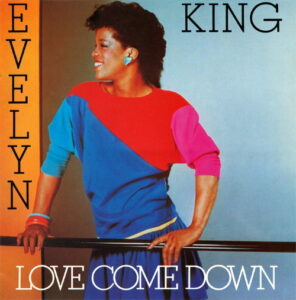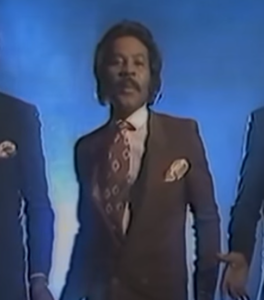[This biography provided to SoulTracks compliments of Stax Records]
Little Milton Campbell has never been content to stand still. Following Milton’s musical odyssey from his 1953 recordings for Sam Phillips’s Sun label in Memphis, through East St. Louis and Chicago, and back to Memphis (where he signed with Stax in 1971), it is evident that Milton has strived to keep his blues fresh and contemporary. In doing so he has given this dying art form a necessary transfusion to help keep it alive and healthy in the Seventies.
Born in Inverness, Mississippi, on September 7, 1934, and raised in Greenville, Milton was tagged "Little" because his dad was known as "Big" Milton. Taking up guitar when he was 12, Little Milton left home three years later to play with the Eddie Cusic, Sonny Boy Williamson (Rice Miller), and Willie Love bands.
Milton was brought to the attention of Sun, the label that discovered Elvis Presley a year later, by Ike Turner, who was quite a talent scout during his pre-Tina days.
"Ike has always been the business man," Milton told Living Blues magazine. "He always wanted to get into a little more than being an artist or musician. He was always coming up with deals with companies and meeting people that none of the rest of us really got to know too much about. He was like the brain thing."
Milton’s first record, "Somebody Told Me," was a primitive variation on B.B. King’s "Woke Up This Morning." Subsequent releases for Meteor and the East St. Louis, Illinois-based Bobbin label displayed more sophistication, although Milton remained under B.B.’s spell.
Moderate sales of the Bobbin sides, especially "I’m a Lonely Man," brought Milton to the attention of Chicago’s Leonard Chess, who signed him to the Checker label in 1961. Three years later, Milton had his first national smash, a cover version of Bobby Bland’s "Blind Man."
"It wasn’t my goal to go out to get Bobby Bland. My goal was to try to look out for Little Milton," he told Living Blues. "I heard the tune-they recorded it first-and I liked it. And it didn’t do anything for them. They had it on an album. I thought it could be a smash, so I did it…. I did put a little more guts into it and slowed it down some-gave it a little more meaningful beat."
"Blind Man" gave Little Milton a national reputation, although there was talk in some quarters that he was merely a Bland imitator. Two monster hits the next year-"We’re Gonna Make It" (a title which seemed to capture the black mood of the time) and "Who’s Cheating Who"-put the gossip to rest. Milton, along with producer Billy Davis, had come up with an original fusion of blues and soul that has been the Little Milton trademark ever since, although he could still reach back in the alley, as he did in 1967 with his hit version of Lightnin’ Hopkins’s "Feel So Bad" from the classic Little Milton Sings Big Blues Checker album.
Returning to Memphis to sign with Stax in 1971, Milton began featuring his guitar more prominently than he had on his later Checker sides. Several successful singles followed, including "That’s What Love Will Make You Do" and the haunting "Walking the Back Streets and Crying," which he performed atop a tenement roof in the motion picture Wattstax. Stax allowed Milton complete artistic control over his two albums for the label-Waiting for Little Milton and Blues ‘n Soul. Both are masterpieces of modern blues, richly orchestrated by James Mitchell and showcasing Milton as a mature vocalist of great emotional depth.
After leaving Stax, Milton cut more self-produced albums for the Miami-based Glades label.
Little Milton died on August 4, 2005.









